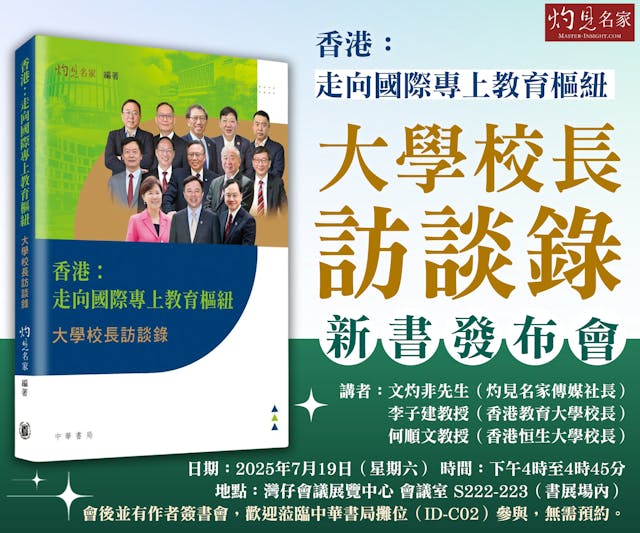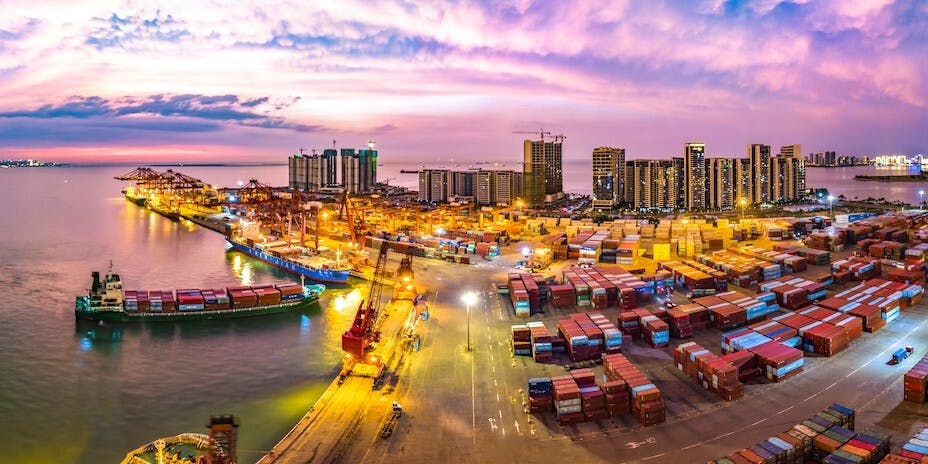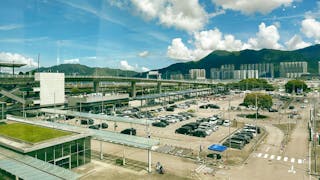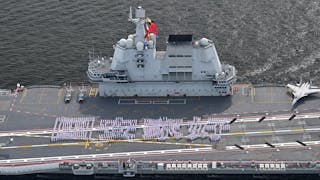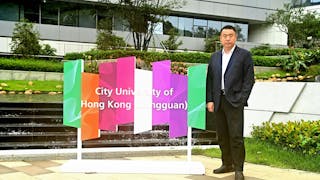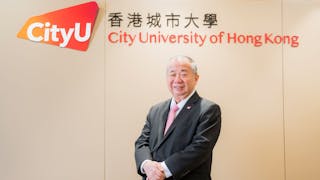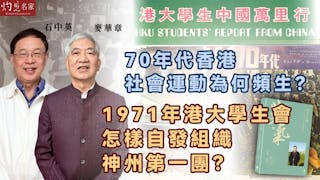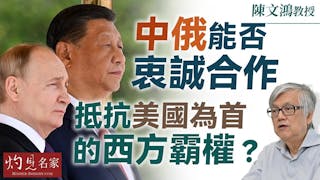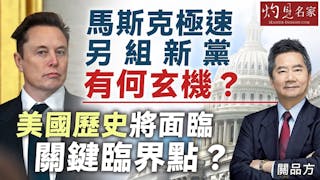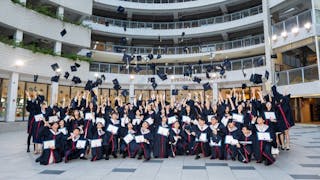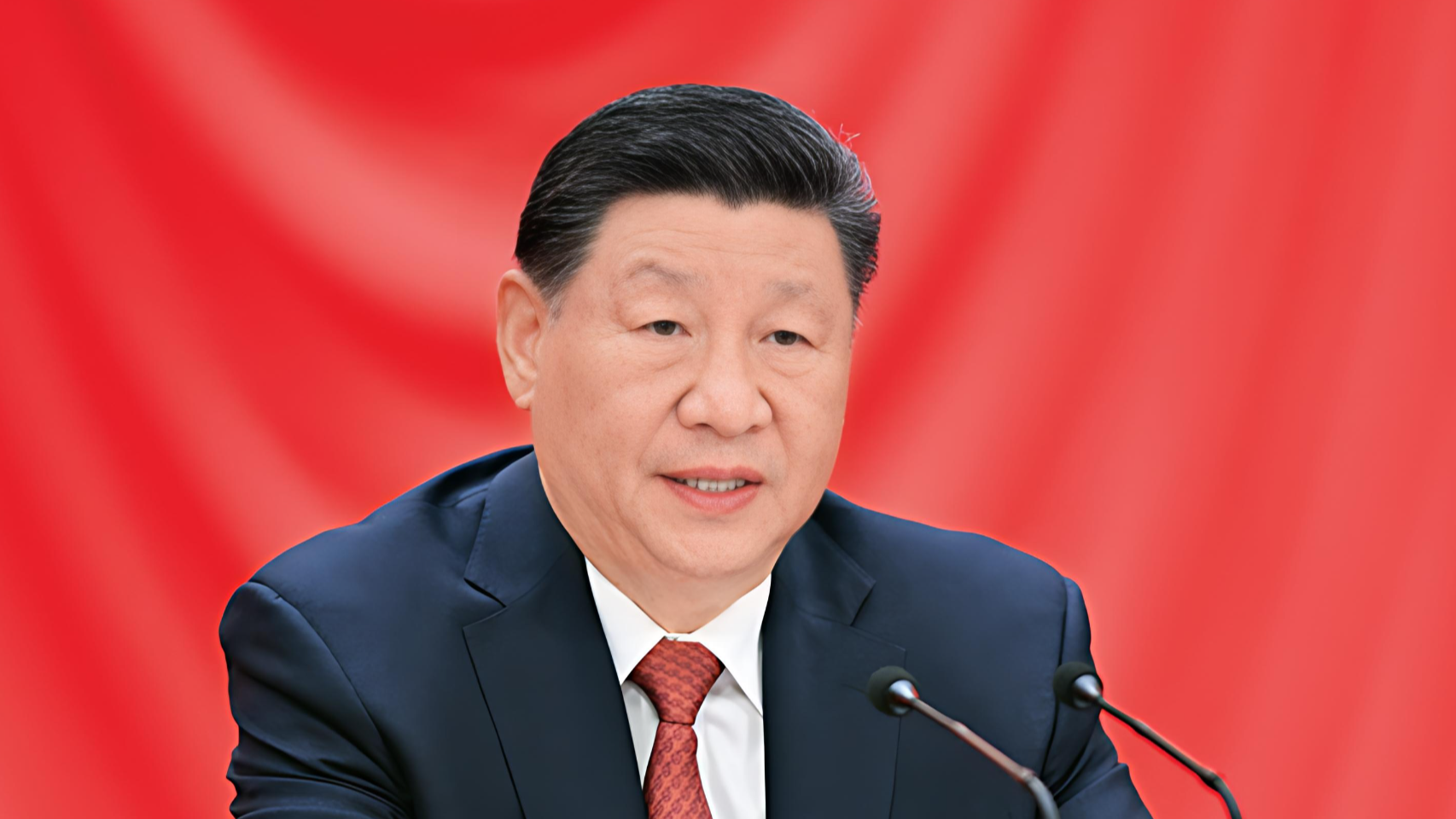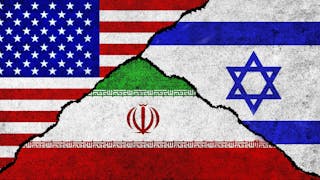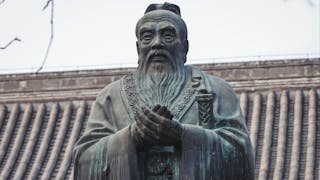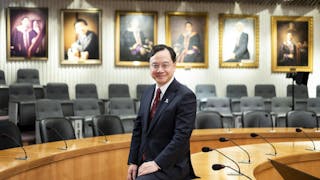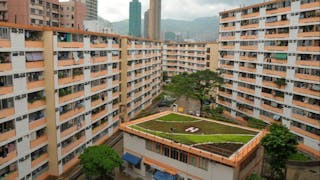11月24日,中國商務部副部長任鴻斌在新聞發布會上表示,將完善內地與港澳關於建立更緊密經貿關係安排制度體系,推動內地、香港、澳門三地共建單一自貿區。儘管香港和澳門的傳媒沒有廣泛報道其言論,但包括廣東和福建深化自貿區發展進程,不僅對港澳,且對台灣都具有重大的經濟和地緣政治意義。
香港仍是吸引外國直接投資重要平台
任鴻斌表示,2015年至2019年香港貿易規模穩步擴大。今年以來,內地與香港貿易實現快速增長。2021年1至10月,內地與香港進出口總額2859.5億美元,同比增長33.5%,高於中國外貿整體增速1.6個百分點。
任鴻斌指出,香港是內地最大的境外投資來源地和對外投資目的地。今年1至10月,內地實際使用港資1091.5億美元,同比上升30.0%,佔內地實際使用外資76.9%。內地對香港新增非金融類直接投資447.9億美元,佔內地對外投資50.9%。明顯地,香港仍然是吸引外國直接投資的重要平台,另一方面,香港也要成為吸引內地對外投資的磁鐵。
在這種情況下,內地必須與港澳「完善更緊密經貿關係安排制度體系」,構建「單一自貿區」。任鴻斌表示,這個「單一自貿區」將進一步提升貿易投資自由化便利化水平,「推進商務領域高質量建設粵港澳大灣區,推動商品和要素更加便捷有序流動。大力支持港澳發揮自身優勢,積極參與國內大循環,聯通國內國際雙循環,在構建新發展格局中發揮更重要作用」。任鴻斌的講話具有重要的經濟意義,因為港澳特區不僅在華南自貿區的深化進程中,而且在後新冠病毒時期中國經濟加速「雙循環」都可發揮積極作用。
中國利用國際組織 刺激經濟自由化
與此同時,商務部印發了關於「十四五」對外貿易發展藍圖和「高質量發展」的重要文件。 任鴻斌闡述了中國未來幾年面臨的挑戰和工作計劃。
任鴻斌表示,當前,世紀疫情和百年變局交織,國內和國際挑戰並存,短期和中長期風險疊加。四大宏觀風險不容忽視:一是疫情仍在全球蔓延,世界經濟復甦的基礎不牢,發達經濟體和發展中經濟體發展出現分化。二是單邊主義、保護主義抬頭,經濟全球化遭遇逆流。三是全球通脹上升,沿產業鏈從上游向下游傳導。四是國際產業鏈、供應鏈加速重構,區域化、近岸化、本土化、短鏈化趨勢明顯。
他承認,內地企業的許多訂單被延遲或取消,包括航運和運費在內的生產成本不斷增加,供應鏈的壁壘依然存在,例如港口封鎖、航空和貨運服務減少。 任鴻斌表示,訂單減少、芯片短缺和勞動力不足等問題在內地變得突出。
因此,中國正在從三個方面重新調整其發展戰略:一、提升和深化現有自由貿易區,以繼續經濟自由化進程; 二、推動加入《跨太平洋夥伴全面進步協定》(CPTPP)和《數字經濟夥伴關係安排》(DEPA); 三、利用《區域全面經濟夥伴關係協定》(RCEP)促進區域商貿關係、培訓人才和引領經濟發展,與其他國家開展經濟合作,提升雙邊貿易水平。
顯然,中國正在利用國際經濟組織來刺激國內和地方的經濟發展和自由化。 對內經濟自由化也在不斷深化和加快,增強「雙循環」的國際方面,而外部的國際經濟組織亦在為內部經濟自由化提供必要的推動力。
港澳兩地更緊密融入廣東自貿區
在內地自貿區不斷深化和擴大的情況下,對港澳台的經濟和地緣政治會有很大影響。
早在2019年10月,國務院副總理胡春華在廣東調研時表示,廣東自貿區必須更加開放,進一步發展成為大灣區及港澳地區的示範區。 然而,新冠病毒持續存在,以及 2019 年香港的政治風波推遲了廣東自貿區的深化進程。現在,隨着《香港國安法》的順利實施和大灣區經濟融合的深化,港澳兩地更緊密地融入廣東自貿區,在中央政府主管經濟規劃者眼中,已成為粵港澳大灣區發展藍圖經濟議程中的重中之重。
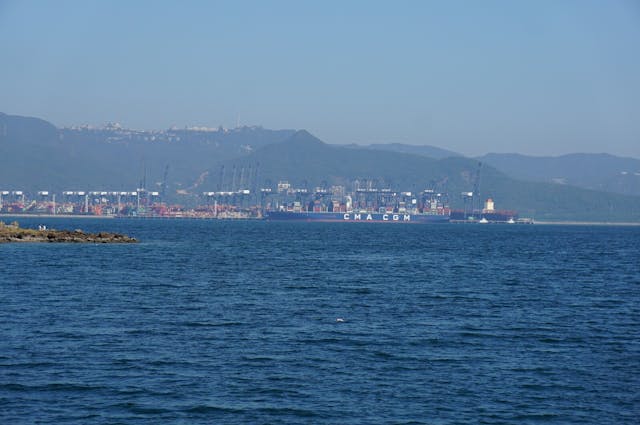
因此,香港發展北部都會區、港深經濟更緊密合作、澳門──橫琴合作區的建設,必須放在一起成為一籃子經濟,讓大家了解對深化廣東自貿區發展的重要性。所有這些發展舉措,都可以促進香港、澳門和整個廣東省包括大灣區城市之間的經濟更快發展和融合。畢竟,大灣區的發展,將能夠且會為「一帶一路」倡議作出貢獻。
內地與香港邊境的逐步開放,以及內地與珠海之間日益密切的人員和貿易往來,將為下一階段的經濟融合和發展,即大灣區和廣東自貿區的加速發展鋪平道路。從北京的經濟和地緣政治角度來看,所有這些經濟活動都具有特殊的外部經濟功能:激活內部經濟循環,促進中國內部經濟自由化和對外申請加入 CPTPP 和 DEPA,同時利用 RCEP,讓中國現有 21 個自貿區有能力充分發揮和釋放潛能。
然而,中國的經濟自由化,亦意味着香港和澳門的投資者和商人,必須比以往任何時候都要更深入、更好地了解內地的法律法規。11月26日,溫州市突然傳出對澳門賭業猛人周焯華的逮捕令,這意味着澳門和香港的商人必須對內地的法律法規高度敏感。 中國仍然是一個社會主義國家,其經濟運作與香港和澳門相對更資本主義的性質不同。
鑑於深化自貿區在中國經濟政策議程中佔據重要位置,澳門政府發布《人才引進制度》諮詢文件的時機已經成熟。 諮詢期為 2021 年 11 月 10 日至 12 月 24 日。該文件首先審視澳門對現行制度及機制,指出澳門政府計劃首先引進大健康、現代金融、高新科技及文化體育產業四大新產業發展所需的領軍人物和高級專業人才,借助他們的技術、經驗及市場網絡,帶動和支持本地產業及行業發展。有關文件是解決澳門本地人才缺乏的良好舉措, 不過,規劃過程存在不足。
自貿區深化對港澳台經濟和地緣政治意義大
首先,諮詢文件側重於澳門的內部發展,沒有對大灣區和廣東自貿區的發展需求進行更廣泛的敍述。統計數據仍然缺乏符合澳門需求的可用大灣區人才,反之亦然。其次,澳門要發展上述四方面人才,政府必須與本地大學和大專院校建立更緊密的伙伴關係,同時需要進入大灣區建立校園,與內地大專院校建立更密切的合作。 第三,澳門的僱主、本地大學和政府三邊組成的委員會必須定期舉行,以便更有效地實施計劃。否則,一個沒有詳細實施程序的宏大計劃,很可能使澳門繼續缺乏本地人才,很可能要從內地引進,而那些願意到大灣區工作和居住的人,很可能會挖走澳門本地人才。
同樣,香港在培養本地人才方面也需要有更好的規劃。鑑於香港本地學生人數下降,香港特區政府遲早要放寬內地學生來港學習,並與中國政府協商,讓更多內地學生來港學習。其次,與澳門一樣,特區政府可能需要成立人才發展委員會,積極讓本地僱主和大學參與進來,這樣在與大灣區和廣東自貿區的經濟融合過程中,才不會因為本地人才被掏空而影響城市的競爭力。
歸根結柢,福建自貿區的深化進程,很可能在未來幾年發揮統戰作用,贏得更多台灣民眾的心。一旦新冠病毒逐漸消失,北京與台北的關係可能因為兩岸民眾增加互訪、交流和人員往來而回暖。屆時,福建和海南自貿區的發展,可能會提供更多有用的經濟平台,將台灣拉入大陸的經濟軌道。這些自貿區也可能成為平台,如果有一天台灣在經濟上加入大陸成為經濟共同體,則可以通過這些平台加入一些台灣現在無法加入的國際經濟組織。畢竟,大陸自貿區可成為台灣進入東南亞經濟市場的雙贏跳板。在最近公布的中國共產黨六中全會決議,要求大陸採取更多措施加強對台關係後,大陸官員開始強調,未來幾年如果兩岸在經濟上更趨接近,對台灣經濟的好處。
綜上所述,內地尤其是廣東、福建和海南自貿區的深化進程,對港澳台地區的經濟和地緣政治具有重要意義。 經濟上,港澳更緊密、更快地融入大灣區,將有利於廣東自貿區的加速深化進程,同時也要求港澳兩地政府更深入、更廣泛地思考如何培養、育成和留住本土人才,同時為大灣區的共同繁榮發展引進必要的內地人才。如果福建和海南自貿區全面發展,台灣也可能在經濟上受益。 換言之,內地深化經濟自由化的進程在未來幾年對港澳台地區的經濟和地緣政治具有重大而積極的影響。
Deepening Free Trade Zones in the Mainland: Economic and Geopolitical Implications for Hong Kong, Macau and Taiwan
On November 24, Ren Hongbin, the Assistant Minister of Commerce of the government of the People’s Republic of China (PRC), said in a press conference that Hong Kong and Macau will be integrated into the process of fostering closer trade relations with the mainland, thereby facilitating the construction of a “single Free Trade Zone.” His remarks were not covered widely in the media of Hong Kong and Macau, but the deepening process of Free Trade Zones (FTZs) in the mainland, including Guangdong and Fujian, has significant economic and geopolitical implications for not only Hong Kong and Macau but also Taiwan.
Ren Hongbin remarked that Hong Kong’s trade volumes had been expanding rapidly from 2015 to 2019, exhibiting an export growth rate of 33.5 percent from January to October 2021 and outperforming the mainland’s export growth rate by 1.6 percent during the same period in 2021 (Wen Wei Po, November 25, 2021, A14). Ren pointed to the impressive volume of foreign direct investment in the Hong Kong Special Administrative Region (HKSAR), which absorbed 50.9 percent of the PRC’s outbound investment from January to October 2021. Clearly, the HKSAR remains a crucial platform to attract FDI on the one hand and to act as a magnet for the mainland’s outward investment on the other.
Under these circumstances, the mainland has to “perfect the closer economic partnership” with the HKSAR and Macau SAR, constructing a “single FTZ.” According to Ren, this “single FTZ” will facilitate and elevate trade and investment liberalization, promote the circulation and mobility of goods and product, maximizing the comparative advantages of Hong Kong and Macau, actively contributing to the “double circulation” of the PRC’s economy, fostering the “international” circulation with the global economy, and constructing a “new developmental strategic set-up” (Wen Wei Po, November 25, 2021, p. A14). Ren’s remarks were economically and significant, because the HKSAR and Macau SAR are occupying a key role in not only the deepening process of the FTZ in South China, but also the acceleration of “double circulation” of the mainland Chinese economy in the post-Covid-19 era.
At the same time, the PRC Ministry of Commerce published an important document on the developmental blueprint of external trade and “high quality development” in accordance with the 14thfive-year-plan. Ren elaborated the challenges and work plans of the PRC in the coming years.
The challenges include, according to Ren, the persistence of Covid-19 and the unstable foundation of global economic recovery, the pervasiveness of unilateral protectionism in the world, the trend of global inflation, and the shortened, localized and regionalized nature of the global logistical supply chains. He admitted that many invoices of mainland enterprises were delayed or cancelled, that the costs of production, including shipping and freight charges, were increasing, and that barriers to supply chains persisted, such as the blockage of ports and the reduced airline and cargo services. The lack of invoices, chips and labor supply has become prominent in the mainland, according to Ren.
As such, the PRC is reorienting its developmental strategy in three aspects: (1) the elevation and deepening of the existing Free Trade Zones to continue the process of economic liberalization; (2) the promotion of the entry into the Comprehensive and Progressive Agreement for Trans-Pacific Partnership (CPTPP) and the Digital Economy Partnership Arrangement (DEPA); and (3) the utilization of Regional Comprehensive Economic Partnership (RCEP) to promote the mainland’s localities to promote, train and lead economic development, to cooperate with other countries economically and to elevate the standards of bilateral trade.
Clearly, the PRC is utilizing international economic organizations to stimulate internal and local economic development and liberalization. Internal economic liberalization is also deepened and accelerated for the sake of enhancing the international aspect of “double circulation,” while external international economic organizations are providing the necessary impetus for internal economic liberalization.
Ren Hongbin, Assistant Minister of Commerce of the People’s Republic of China
Under the circumstances in which FTZs in the mainland are undergoing a process of deepening and expansion, there are tremendous economic and geopolitical implications for Hong Kong, Macau and Taiwan.
As early as October 2019, the PRC Vice Premier Hu Chunhua visited Guangdong and said that Guangdong’s FTZ must be more open to develop further as a demonstration region for the Greater Bay Area (GBA), Hong Kong and Macau. However, the persistence of Covid-19 and the political chaos in the HKSAR in 2019 delayed the process of deepening the Guangdong FTZ. Now, with the smooth implementation of the national security law in the HKSAR and the deepening of economic integration in the GBA, the closer integration of both Hong Kong and Macau into the Guangdong FTZ is becoming a priority in the economic agenda of developmental blueprint in the minds of the central government’s economic planners.
As such, the development of the Northern Metropolis in the HKSAR, the closer economic cooperation between Hong Kong and Shenzhen, and the construction of the Macau-Hengqin Cooperation Zone must be put together as an economic basket for us to understand their importance for the deepening of the Guangdong FTZ. All these developmental initiatives can stimulate the faster economic development and integration between the HKSAR, Macau SAR and the entire Guangdong province, including the cities in the GBA. After all, the GBA development can and will contribute to the PRC’s Belt and Road initiatives.
The gradual opening of the border between the mainland and the HKSAR and the increasing human and trade interactions between the mainland and Zhuhai will pave the way for the next stage of economic integration and development: namely the acceleration of the GBA and the Guangdong FTZ development. All these economic activities have a special external economic function from Beijing’s economic and geopolitical perspective: the activation of internal economic circulation facilitates the PRC’s economic liberalization internally and its external applications to join the CPTPP and DEPA, while simultaneously using the RCEP to empower and unleash the full potentials of China’s existing 21 FTZs.
Yet, economic liberalization in the PRC means that investors and businesspeople in Hong Kong and Macau must understand the mainland’s law and regulations much deeper and better than ever before. A sudden report on Wenzhou city’s arrest warrant for a casino capitalist in Macau on November 26 meant that the businesspeople of Macau, and Hong Kong, must be highly sensitive to the mainland’s law and regulations. The PRC remains a socialist state whose economic operations are different from the relatively more capitalistic nature of Hong Kong and Macau.
Given the fact that the deepening of FTZs is high in the PRC’s economic policy agenda, it is the ripe time for the Macau government to publish its consultative document on the review of talents. The consultative period lasts from November 10 to December 24, 2021. The document begins with a critical look at the lack of talent policy in the Macau SAR. It calls for the importation and cultivation of four types of talents in Macau’s first stage of talent development: big health, modern financial and monetary talents, high tech and cultural as well as sports talents. The document is a good move addressing the lack of local talents in Macau; nevertheless, there are weaknesses in the planning process.
First, the consultative document focuses on Macau’s domestic development without adopting a broader picture of the needs of the development of the GBA and Guangdong FTZ. Statistical data are still lacking in the available GBA talents who can match the needs of Macau, and vice versa. Secondly, if Macau is to develop the talents in the four areas mentioned above, the government must establish a much closer partnership with local universities and tertiary institutions, which at the same time must go into GBA to establish campuses and closer cooperation with mainland tertiary institutions. Thirdly, a triangular committee between the Macau employers, local universities and the government must be held regularly so that the plans will be implemented in a more effective manner. Otherwise, a grandiose plan without detailed implementation procedures will likely make Macau continue to be deprived of local talents, who will likely be imported from the mainland and yet whose tendency to work and reside in the GBA will likely and ironically hollow out the pool of local talents in Macau.
Similarly, the HKSAR will need much better planning in the cultivation of local talents. Given the declining local student population in Hong Kong, the government of the HKSAR must sooner or later relax the entry of mainland students to study in the HKSAR and negotiate with the PRC government in allowing more mainlanders to study in the city. Secondly, as with Macau, the HKSAR government may have to set up a talent developmental committee to actively engage the participation of local employers and local universities so that, in the process of economic integration with the GBA and Guangdong FTZ, local talents would not be hollowed out and thereby affecting the city’s competitiveness.
In the final analysis, the deepening process of the Fujian FTZ would likely have the function of conducting united front work to win the hearts and minds of more Taiwan people in the years to come. Once Covid-19 would gradually fade away, Beijing-Taipei relations would likely undergo a warmer process of enhancing cross-strait visits, mutual exchanges and human interactions. By that time, the development of the FTZs in Fujian and Hainan Island would likely provide more useful economic platforms to lure Taiwan into the mainland’s economic orbit. These FTZs may also become platforms through which Taiwan, if joining the mainland economically one day as an economic union, may be allowed to join some economic international organizations that the island republic is now unable to do so. After all, the mainland’s FTZs can become a launching pad for Taiwan to enter the economic markets of Southeast Asia in a win-win-situation. After the recent publication of the party resolution of the Chinese Communist Party that calls for more initiatives from the mainland to enhance relations with Taiwan, mainland officials have begun to emphasize the economic benefits to Taiwan if the two sides come closer together economically in the coming years.
In conclusion, the deepening process of the Free Trade Zones in the mainland, especially in Guangdong, Fujian and Hainan, has significant economic and geopolitical implications for Hong Kong, Macau and Taiwan. Economically, Hong Kong and Macau’s closer and faster integration into the Greater Bay Area is going to benefit the acceleration and deepening process of the Guangdong Free Trade Zone, while at the same time calling for the governments of the two SARs to think deeper and broader on how to nurture, grow and retain local talents while importing the necessary mainland talents for the co-prosperity development of the Greater Bay Area. Taiwan would likely benefit economically if the Free Trade Zones of Fujian and Hainan will develop in a full-fledged manner. In other words, the process of deepening economic liberalization in the mainland has significant, positive economic and geopolitical implications for Hong Kong, Macau and Taiwan in the coming years.
原刊於澳門新聞通訊社(MNA)網站,本社獲作者授權轉載。




